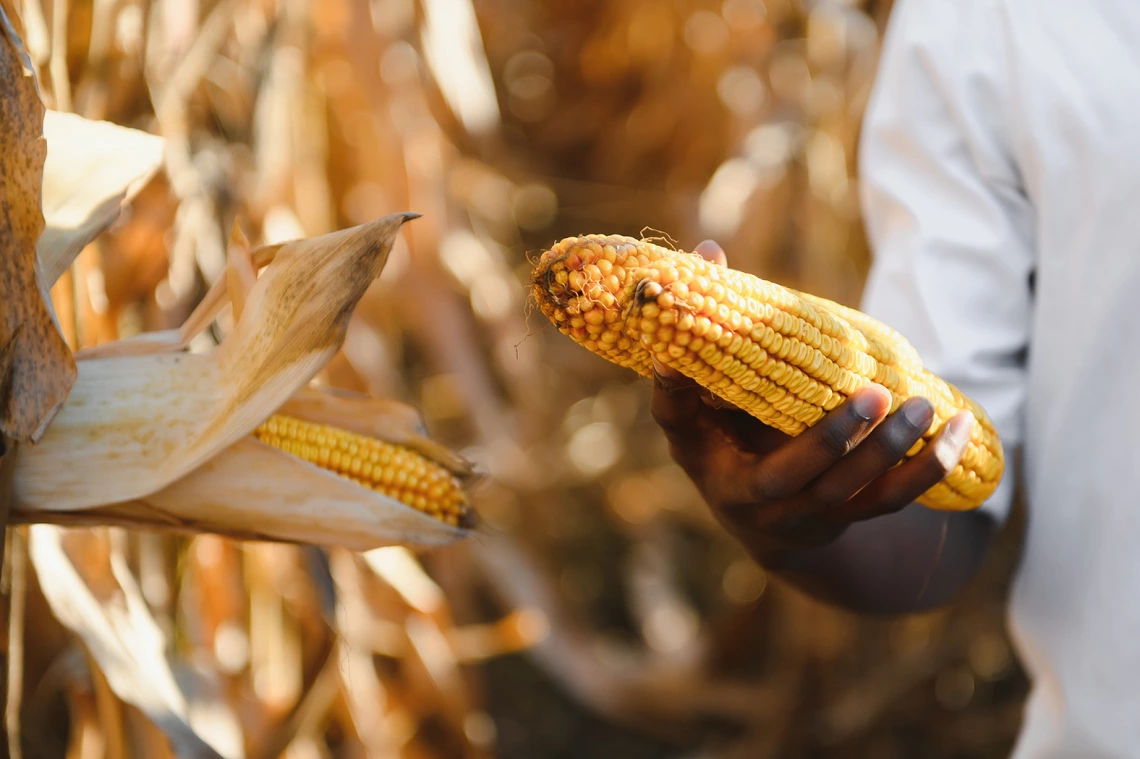CALES researchers receive $1.25M award to tackle big agricultural questions in Uganda
In collaboration with Ohio State University, Makerere University, and the International Food Policy Research Institute (IFPRI), University of Arizona researchers will conduct impact assessments on technologies previously deployed across the country.

Man examining corn crops in the field.
Adobe Stock
How do we know if agricultural programs and innovations are really making a difference? Researchers with the College of Agriculture, Life and Environmental Science are taking the lead to find out. With new funding from the Consortium of International Agricultural Research Centers (CGIAR), and the Bill and Melinda Gates Foundation, researchers will focus on Uganda to dig into what’s working, what’s not, and how to better serve communities.
The research will focus on two objectives: continuing to take stock of all the innovations that have been disseminated across Uganda and designing control trials to test their effectiveness. Trials will examine the long-term health and nutritional impact of previously distributed seeds for biofortified crops.
“A biofortified crop is a plant that has been bred to increase its nutritional content, typically done through selective breeding,” explained Jeffrey Michler, principal investigator of the project and an associate professor at the Department of Agricultural and Resource Economics. “Biofortified crops, such as orange-fleshed sweet potatoes enriched with vitamin A to combat night blindness, and iron-fortified beans to combat anemia in women and children, are going to be a big component of this.”
A key part of the project will be to examine the variability of vitamin content in biofortified plants, such as the orange-fleshed sweet potato, to better understand their nutritional benefits. Researchers will also examine the genotyping of maize to uncover the true genetic identities of varieties found in farms — an important step as many farmers are uncertain about the types of corn they grow.
The findings will help inform agricultural decision-making as researchers find which crops are successful and which ones are not. Ultimately, connecting these agricultural advancements to real-world impacts will be crucial to the success of the programs.
“We know that agricultural innovations can turn the tide on poverty and catalyze rural development; we saw this during the Green Revolution, for instance,” said Leah Bevis, an associate professor at Ohio State University and principal investigator of the project. “But not all agricultural products and practices promoted by scientists are actually adopted by farmers — and not all of those adopted are impactful! I see our work as helping to guide the CGIAR institutions towards a greater focus on those agricultural innovations that farmers do want to adopt, and that are improving lives.”
The project will be a significant step forward in assessing and improving agricultural technologies in Uganda, a country where agriculture remains a cornerstone of the economy. The research will provide important insights to guide policy and program development, ensuring that future agricultural innovations are evidence-based and impactful.
